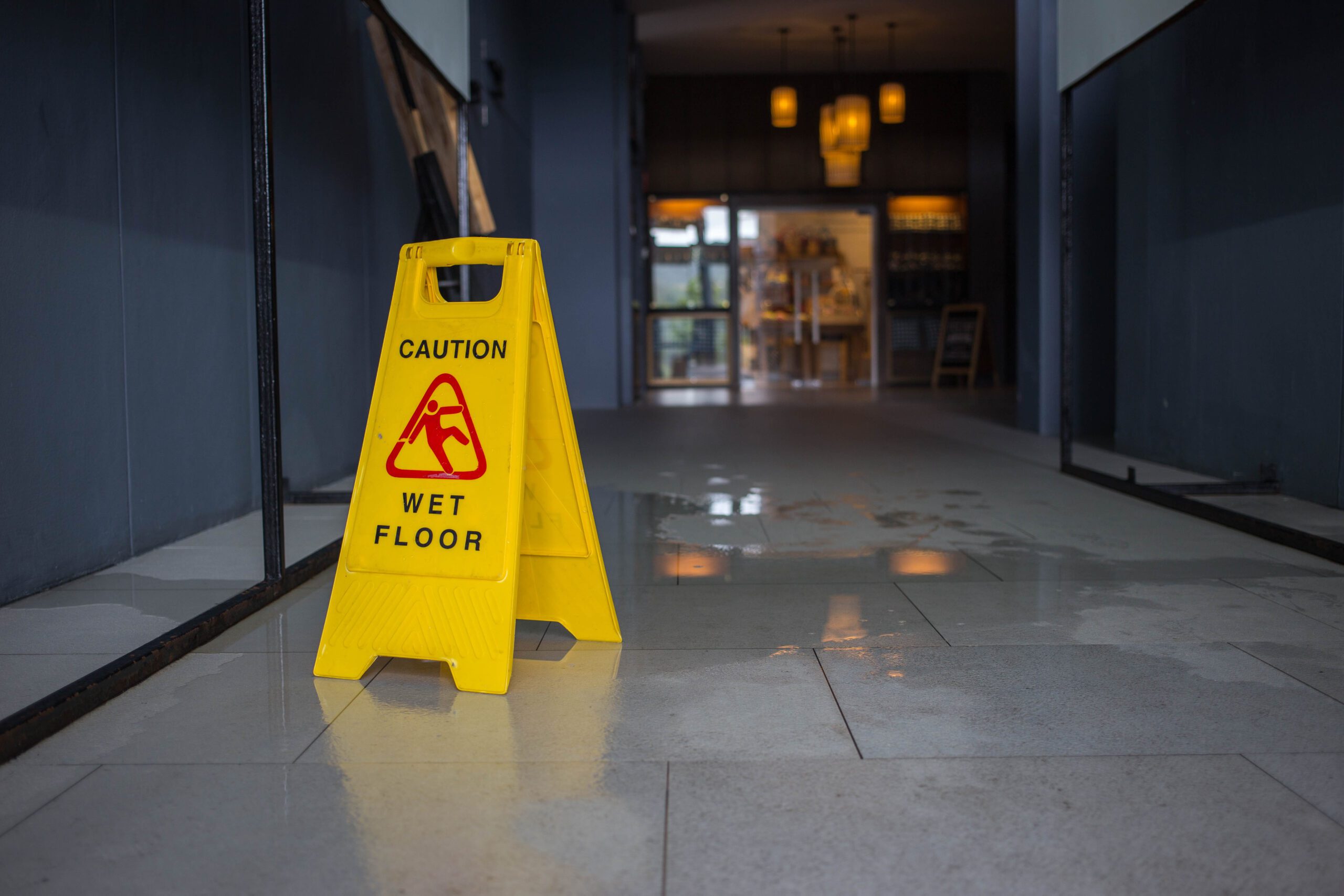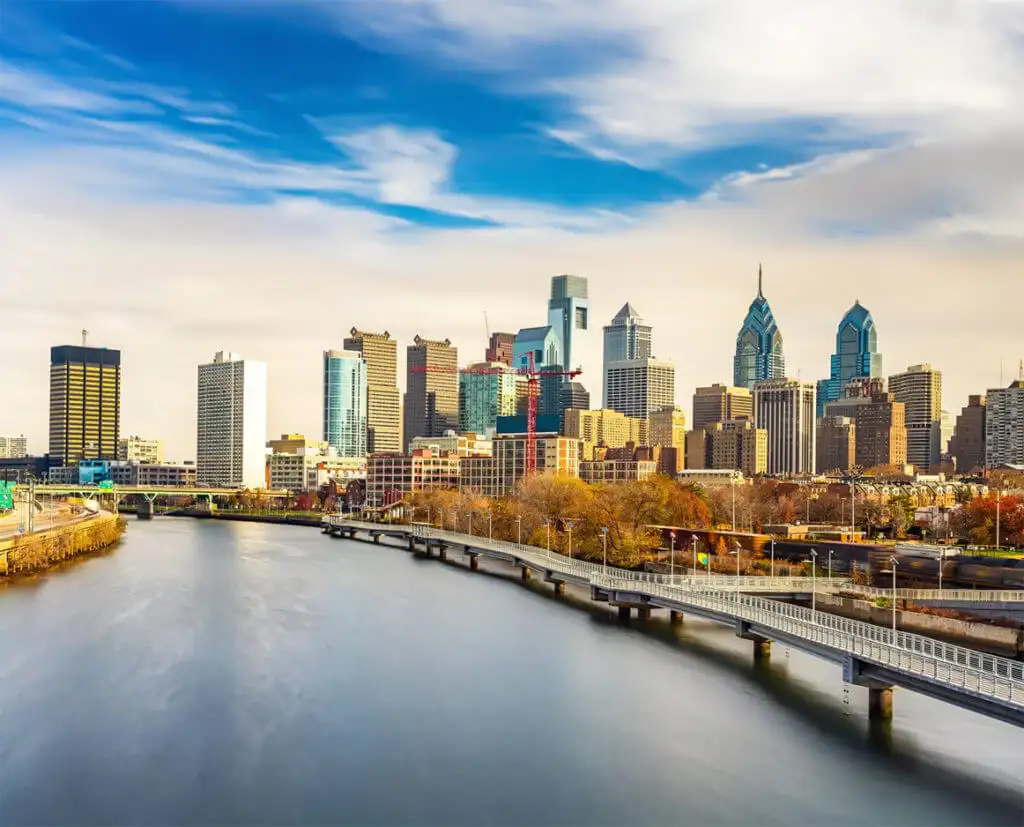7 Common Slip and Fall Cases in Philadelphia
A sudden, unexpected fall can have disastrous consequences. It can lead to a range of injuries, from minor bruises to permanent disability.
Rosen Justice Injury Lawyers can help you get compensation. Our firm has represented clients in many slip-and-fall cases, and we know how to get results.
Typical Slip-and-Fall Cases
Slip-and-falls can happen at any time. Many people don’t realize the dangers they face just by going out in public. Let’s look at common slip-and-fall case examples to show how these accidents happen.
1. Uneven Sidewalks and Pavement
Walking on Philadelphia’s sidewalks can help you see the city’s historic architecture and bustling activity. Yet, this charm can conceal potential hazards. Even the most minor gaps and cracks in sidewalks can cause you to lose your footing and fall.
Several factors can cause uneven sidewalks, including:
- Settling and aging. Over time, natural settling and aging can cause sidewalks to develop cracks and uneven surfaces.
- Tree roots. Philadelphia’s tree-lined streets can contribute to uneven sidewalks as tree roots push against concrete.
- Weather conditions. Freezing temperatures and heavy rain can deteriorate sidewalks, creating tripping hazards.
These accidents are particularly harmful because they happen naturally. Property owners must be proactive to prevent these threats.
2. Wet and Slippery Floors in Establishments
Restaurants, grocery stores, and other businesses are typical scenes of slip-and-fall accidents. These establishments need to ensure flooring is safe and free of hazards.
Common scenarios leading to wet floors include:
- Spills and leaks. Accidental spills from drinks, food, or leaks can create slippery surfaces.
- Weather-related conditions. If not appropriately managed, rainwater and snow tracked in by customers can contribute to slippery conditions.
- Mopped floors. It’s common for establishments to mop floors for cleanliness, but this cleaning can leave surfaces slippery.
These incidents often happen due to someone else’s carelessness or improper training.
3. Icy and Snowy Walkways
Philadelphia experiences cold winters with icy and snowy conditions. Property owners must remove ice and snow to prevent hazardous conditions. Failure to do so can lead to a slip-and-fall case.
Some hazards during winter include:
- Unshoveled sidewalks. Property owners are responsible for shoveling snow and applying ice melt to maintain safe walkways.
- Melting and refreezing. The cycle of melting and refreezing can create black ice. This nearly invisible hazard poses a significant risk to pedestrians.
- Roof runoff. Melting snow from rooftops can drip onto walkways. Once temperatures drop, this runoff freezes and creates dangerous ice.
Ice and snow often form overnight. You should always be cautious in the morning if custodians haven’t yet cleaned walkways.
4. Inadequate Lighting
Poorly lit areas can conceal potential hazards, increasing the risk of slip-and-fall accidents. Property owners must place lighting in all common areas to prevent injuries due to tripping or slipping.
Common causes of bad lighting include:
- Burned-out bulbs. Property owners sometimes ignore burned-out or malfunctioning light bulbs, leading to risky conditions.
- Lack of emergency lighting. Critical areas need backup lighting to prevent accidents during power outages or emergencies.
- Overgrown vegetation. Untrimmed trees or vegetation can block outdoor lights and create dangerous dark spots.
Double-check your footing when entering a dark area, especially if other risks like ice or water are present.
5. Defective Handrails or Guardrails
Stairs and elevated areas with defective or missing handrails pose a serious risk to pedestrians. Property owners must provide and maintain secure handrails to prevent accidents and injuries.
Some causes of defective railings include:
- Loose or missing fasteners. Wear and tear can cause fasteners to become loose and fall out, making the railing unsafe.
- Rust and corrosion. Over time, exposure to the elements can lead to rust and corrosion. Handrails can appear safe but will fail once someone adds too much weight.
- Inadequate installation. Some builders use substandard materials and improper attachment methods to save money. This can make handrails weak and dangerous.
The elderly and disabled rely on handrails to walk. They are most at risk of serious injuries when railings fail.
6. Failure to Warn of Hazards
Property owners have a duty to warn visitors of potential hazards. This includes putting up signs or providing other warnings in areas with a risk of slipping or falling.
Failure to warn slip-and-falls can happen in:
- Restaurants and bars. It’s common for food, drinks, and ice to fall on the floor at restaurants. Guests might drop these by accident, creating slipping hazards.
- Construction zones. There are countless hazards in construction zones. Property owners must place warning signs, even if they consider these risks obvious.
- Recently cleaned areas. Cleaning products and floor wax can leave surfaces slippery. Workers need to place wet floor signs once they finish cleaning.
While warning signs are common defenses for slip-and-falls, they don’t prevent all liability. You might still be able to file a lawsuit if a warning sign was present.
7. Escalator and Elevator Accidents
Malfunctioning escalators and elevators can be a source of slip-and-fall accidents. Sudden stops or defects in the equipment can cause passengers to lose their balance and fall. Property owners and maintenance companies need to maintain these systems for public safety.
Causes of escalator and elevator accidents include:
- Sudden stops and jolts. Escalators or elevators can cause passengers to lose balance after an unexpected stop.
- Defective door systems. Malfunctioning door systems in elevators can lead to entrapment or injuries, especially when closing unexpectedly or failing to open correctly.
- Maintenance negligence. Lack of maintenance and inspection may contribute to defects or failures, putting users at risk of accidents.
Always watch your step when getting on and off escalators. These machines are strong and can cause catastrophic injuries.
You Can Recover Compensation After a Slip-and-Fall
You have the right to pursue compensation if you’ve experienced a slip-and-fall due to negligence. This compensation includes:
- Medical expenses,
- Lost wages,
- Pain and suffering,
- Property damage, and
- Rehabilitation costs.
Determining the full value of these damages can be difficult. An attorney can help you and pursue a settlement that covers all your injuries.
Schedule a Free Consultation
Work with Rosen Justice Injury Lawyers to recover compensation for your injuries. Our lawyers have helped clients across Philadelphia recover six-figure settlements in slip-and-fall cases. Call today to speak with a personal injury lawyer about your case.


